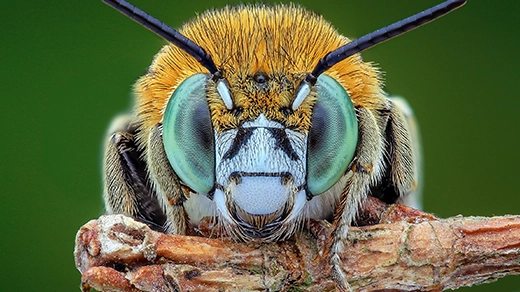What's up in
Neuroscience
Latest Articles
What Happens in the Brain to Cause Depression?
Drugs that target the neurotransmitter serotonin have long been prescribed to treat depression. Now the spotlight is turning to other aspects of brain chemistry. In this episode, the neuropharmacologist John Krystal shares findings that are overturning our understanding of depression.
Electric ‘Ripples’ in the Resting Brain Tag Memories for Storage
New experiments reveal how the brain chooses which memories to save and add credence to advice about the importance of rest.
Insects and Other Animals Have Consciousness, Experts Declare
A group of prominent biologists and philosophers announced a new consensus: There’s “a realistic possibility” that insects, octopuses, crustaceans, fish and other overlooked animals experience consciousness.
Pleasure or Pain? He Maps the Neural Circuits That Decide.
The work of the neuroscientist Ishmail Abdus-Saboor has opened up a world of insights into precisely how much pleasure and pain animals experience during different forms of touch.
Overexposure Distorted the Science of Mirror Neurons
After a decade out of the spotlight, the brain cells once alleged to explain empathy, autism and theory of mind are being refined and redefined.
The Social Benefits of Getting Our Brains in Sync
Our brain waves can align when we work and play closely together. The phenomenon, known as interbrain synchrony, suggests that collaboration is biological.
Brain’s ‘Background Noise’ May Explain Value of Shock Therapy
Electroconvulsive therapy is highly effective in treating major depressive disorder, but no one knows why it works. New research suggests it may restore balance between excitation and inhibition in the brain.
Tiny Tweaks to Neurons Can Rewire Animal Motion
Altering a protein in the neurons that coordinate a rattlesnake’s movement made a slow slither neuron more like a speedy rattle neuron, showing one way evolution can generate new ways of moving.
How Did Altruism Evolve?
If evolution favors the survival of the fittest, where did the impulse to help others come from? Host Janna Levin speaks with Stephanie Preston, a neuropsychologist who studies the biology of altruism.








